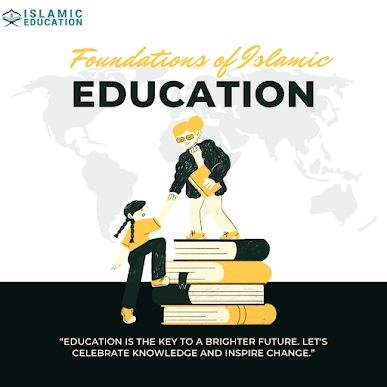Islamic education roots itself in values passed down through centuries. It seeks to build knowledge, character, and a sense of responsibility to God and society. Its lessons go beyond memorization, shaping the way a person thinks, behaves, and treats others.
Since its beginning, Islamic education has provided guidance and helped shape entire communities. Today, its teachings remain a source of strength for many. By focusing on spiritual growth and ethical living, it remains relevant and respected in the modern world.
Historical Development of Islamic Education
Islamic education began over 1,400 years ago and has grown steadily ever since. Its history is shaped by a drive to gain not only religious knowledge but also to understand the world. Early leaders saw study and teaching as acts of worship, laying the groundwork for structured learning. Over centuries, their commitment to knowledge shaped societies, built institutions, and inspired new generations of teachers and scholars.
The Beginnings in the 7th Century
Learning in the earliest days of Islam was simple and direct. The Prophet Muhammad taught his followers in homes, mosques, and open spaces. The mosque became the heart of learning, where young and old gathered to hear and memorize the Quran. As more Muslims learned to read and write, Islamic teachings reached across Arabia.
Key features of early Islamic education:
Oral tradition: Teaching focused on listening, memorizing, and reciting.
Community learning: Lessons were often public and open to all.
Integration of daily life: Daily rituals and ethics blended into learning sessions.
Rise of Educational Institutions
By the eighth century, Islamic societies began to build formal places of learning. Mosques expanded to include libraries, discussion halls, and study circles. Soon, schools known as madrasas appeared. These centers became central to community life.
Highlights of these institutions:
Madrasas: Offered regular lessons in Quran, law (fiqh), grammar, and more.
Libraries: Built up collections of texts from many cultures, making them hubs of research.
Hospitals: Some hospitals taught medicine, making healthcare an academic field.
Influential Scholars and Their Impact
Throughout Islamic history, scholars shaped both faith and reason. Their work went far beyond religious study. They wrote about philosophy, science, medicine, and math, helping to preserve and spread ancient knowledge.
Key figures include:
Al-Ghazali: Balanced spirituality with logic in his teaching and writing.
Ibn Sina (Avicenna): Explored medicine and philosophy, influencing both East and West.
Ibn Rushd (Averroes): Wrote clear explanations of philosophy and science, later impacting European thought.
Their teachings inspired communities to value knowledge and fairness. They set high standards for study, discipline, and service, helping Islamic education become a respected tradition.
Education’s Role in Shaping Societies
Islamic education has always shaped communities and guided leaders. It brought together people of diverse backgrounds under shared values. Learning was not locked away for a few; it was shared in public, reaching merchants, craftsmen, and rulers.
Long-lasting effects include:
Promoting literacy: Raised reading and writing rates across regions.
New ideas: Made space for discussion and debate about religion, law, and science.
Social unity: Brought people together with a focus on community wellbeing.
The story of Islamic education shows its power to build informed, ethical societies. From its origins to the present, its teachings have guided both personal growth and public good.
Conclusion
The foundations of Islamic education offer a balance of spiritual growth, ethical teaching, and practical knowledge. This tradition has guided people to think deeply, act justly, and care for their communities. Its continued relevance depends on keeping these core values alive while meeting today’s needs.
Modern challenges call for education that links timeless wisdom with present realities. Schools and families can draw from Islamic teachings to foster understanding and responsibility in young people. By building on these foundations, future generations can shape societies that value knowledge, compassion, and unity.
Thank you for reading. Share your thoughts or experiences with Islamic education and be part of this ongoing conversation.
Also read:







